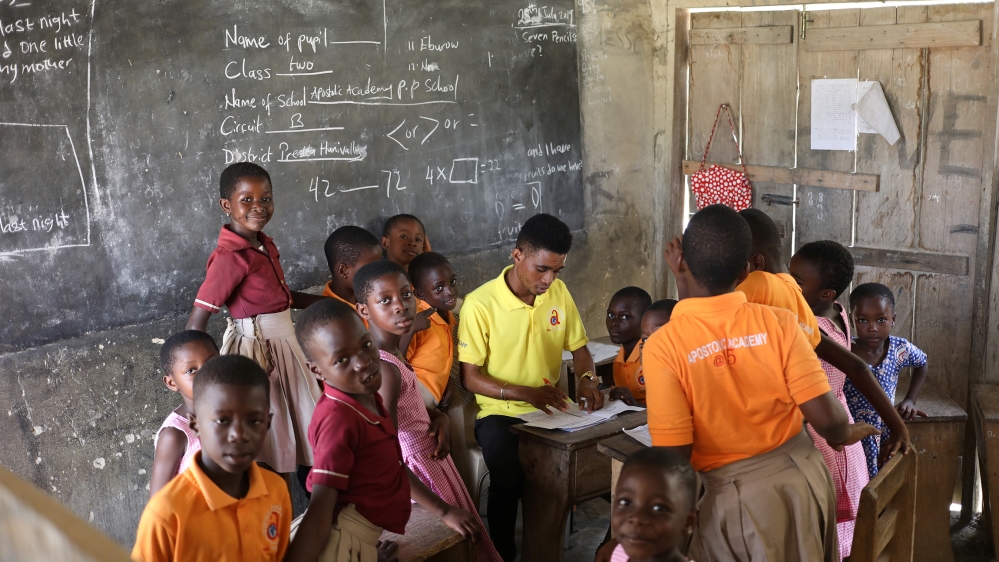Over one-fifth of children between the ages of 6 and 11 are out of school, followed by one-third of youth between the ages of 12 and 14.

In addition, nearly 60% of youth between the ages of 15 and 17 are not in school. The World Bank stated that 87% of children in sub-Saharan Africa are ‘learning poor’ and lack foundational skills they need for the 21st century and a dynamic labor market.
Girls have even more challenges ahead of them: Across the region, 9 million 6- to 11-year-old girls will be denied the opportunity to go to school, compared to 6 million boys, according to UNESCO data.
Their disadvantage starts early: 23% of girls are out of primary school compared to 19% of boys. By the time they become adolescents, the education exclusion rate for girls is 36% compared to 32% for boys.
Today, due to the COVID-19 pandemic, over 250 million primary and secondary children are out of school in Africa. The education sector is heavily affected, with the closure of learning institutions in many African countries likely to negatively impact education quality.
The poor, particularly girls, in rural communities are most affected.
In order to obtain a comprehensive view of learning outcomes during this period, and to better support countries in the immediate, short and long term, the Association for the Development of Education in Africa (ADEA) engaged some of the most affected African countries in March 2020 to map the national situation in the education sector.
African governments and key education stakeholders have instituted measures to promote the continuity of education from home (e.g. online dissemination of virtual recorded course modules, use of mobile and smartphones, televisions and radios, etc.).
These strategies have been successful in some ways, but challenges remain as the poor marginalized children who neither have access to mobile phones or TV, or even radios for that matter, are excluded.
If these challenges are not addressed immediately, they can seriously affect the academic career of our students and in the long term, bring about serious social and economic implications.


No comments:
Post a Comment
Note: only a member of this blog may post a comment.